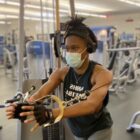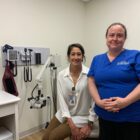Generation Health
Sleep-Deprived Teenagers Dragging Poor Habits Into Adulthood
|
Sleep professionals say they are treating young adults stuck in endless cycles of poor sleep habits developed as teenagers. The wake-up call to seek help comes when life changes around them and their poor sleep habits impact most aspects of their life, including their mood and productivity at work or school. “If you don’t sleep the right amount or are too sleepy, you usually become cranky, irritable. So, sleep disorders really impact every factor of a person’s life,” said Meir Kryger, MD, Yale professor emeritus of medicine and editor of Principles and Practice of Sleep Medicine who retired in June from clinical care after 51 years. Even in the classroom, Kryger lectured his students on the importance of good sleep habits.







